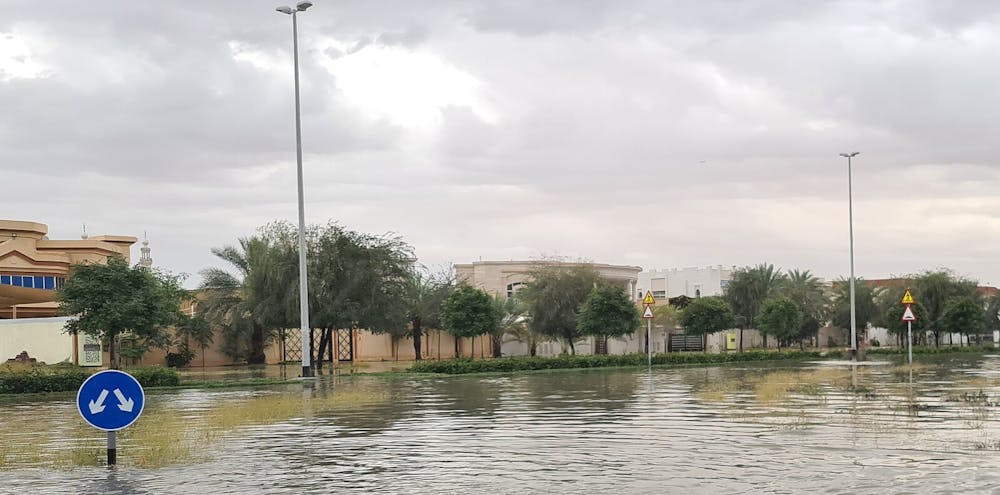By Aneri Upadhyay
Staff Writer
The United Arab Emirates experienced a year’s worth of rain in one day on April 17. This was reported to be the heaviest rainfall in 75 years for the country.
The rain has led schools and businesses to close. Dubai International Airport, the world’s busiest international airport, has prevented flights from taking off, according to NPR. With the runway flooded, Emirates also canceled more than 1,200 flights due to the storm.
The recent storm has caused rainwater to sweep into residential areas, with videos posted about cars in Dubai being stranded and flooded shopping malls.
Although the weather became better as time went on, schools remained closed due to the remaining flooding. However, according to NPR, the UAE’s state news agency stated that the rainfall does help aid the groundwater reserves.
The UAE was not the only affected region by this storm. In Oman, it contributed to more than 20 deaths, 10 of which were children on their way back from school.
As reported by the New York Times, the UAE and Oman are in one of the driest regions of Earth. This is a massive change for the residents of these regions, who are now experiencing cars underwater and obstructed roads. Forecasters knew that this storm was going to happen and issued warnings in advance.
The reason this downpour is so strange is because the Arabian Peninsula experiences rain in short periods of time rather than intense rain for one whole day. Past storms have caused harsh winds, mudslides and rain that have caused damage.
Stronger storms can be caused by global warming, as a hotter atmosphere has more moisture to be converted into rain and snow. However, scientists found that there was not enough data to make predictions about rainfall patterns in the Peninsula. They can conclude that more downpours would occur if global warming got worse.
In order to increase rainfall, the UAE has tried to seed clouds to increase water supplies. According to the New York Times, cloud seeding is when particles that help condensation are shot into clouds. This makes the moisture in the atmosphere become heavier and more likely to drop down as rain or snow.
Luca Delle Monache, a climate scientist at the Scripps Institution of Oceanography in La Jolla, Calif., spoke on how cloud seeding can change rainfall patterns.
“In general, it is quite a challenge to assess the impact of seeding,” said Delle Monache to the New York Times.
Experts do not think cloud seeding impacted the downpour in Dubai. According to AP News, private meteorologist Ryan Maue, former chief scientist at the U.S. National Oceanic and Atmospheric Administration, spoke about the reasoning behind why the rain can’t be caused by cloud seeding.
“It’s most certainly not cloud seeding,” said Maue. “If that occurred with cloud seeding, they’d have water all the time. You can’t create rain out of thin air per se and get 6 inches of water. That’s akin to perpetual motion technology.”
As of now, the specific cause of the downpours is unknown. Scientists are still trying to figure out why the downpours occurred and how it can be prevented.







